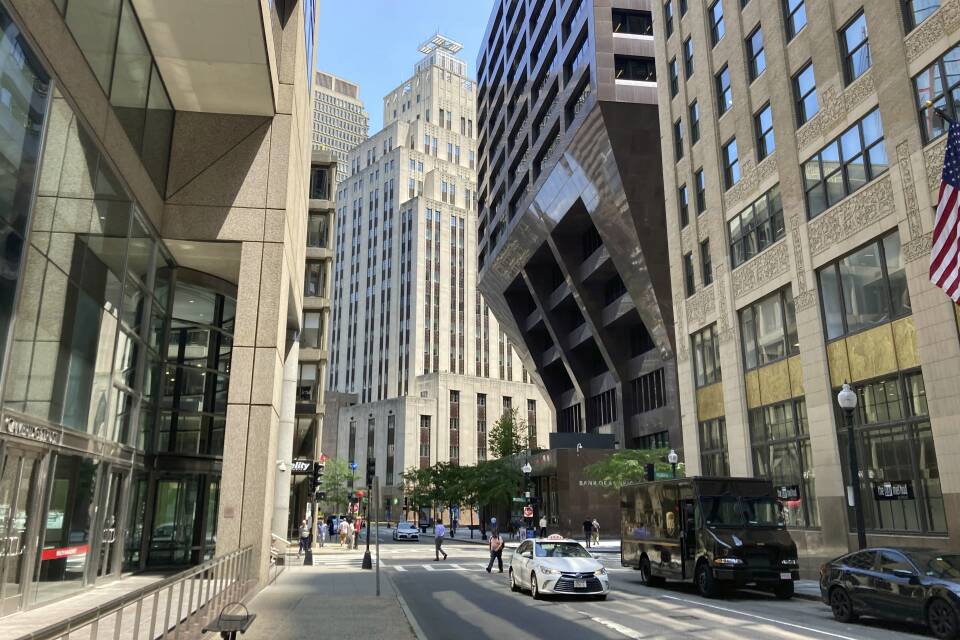With $4 billion in spending authorizations and 28 policy proposals across more than 120 pages, Gov. Maura Healey's housing bond bill is a hefty piece of legislation however you measure it.
Major components of the bill include a $1.6 billion investment in public housing repairs and upgrades, zoning changes that would make it easier for property owners to build in-law apartments, and permission for cities and towns to impose a new fee on certain high-dollar real estate sales. The proceeds from those transfer fees would be used to support affordable housing development.
Lt. Gov. Kim Driscoll presented the bill at a Tuesday hearing in front of the Bonding, Capital Expenditures and State Assets Committee. The scope of the bill, she told them, matches the "depth of the need."
"We have a housing shortage, driving up costs, that is decades in the making," Driscoll said. "We have a repair backlog in our public and affordable housing stock that is also decades in the making, and the time for incremental steps is long past."
The Bonding Committee is the second legislative panel to review the bill. The Housing Committee, after a January hearing that featured nearly 11 hours of testimony, endorsed the bill as written and shipped it along in the process.
After Driscoll and other members of the administration testified, lawmakers who serve on the Bonding Committee gave the bill a warm reception and put forward some of their own ideas.
Rep. Russell Holmes, a Mattapan Democrat, recommended tripling the $100 million that Healey would put toward CommonWealth Builder, a program that supports construction of affordable single-family homes.
"I'm telling you now, I would spend over the next five years, $100 million in Boston alone," Holmes said.
Sen. Pavel Payano said he wanted to echo Holmes' comments on the importance of CommonWealth Builder. Payano called for a focus on homeownership opportunities.
"Young professionals, individuals that are starting a family ... they want their own home, they want that yard, picket fence and dog, right, that we all grew up thinking was a version of the American dream," said Payano, a Lawrence Democrat. "I find that, year by year, there's this feeling that that is harder to achieve."
Of the bill's $1.6 billion for public housing, $15 million would be dedicated for accessibility upgrades for people with disabilities and seniors. Rep. Rob Consalvo, a Democrat from Hyde Park, said that as the bill moves along in the process he will look for ways to increase opportunities "for individuals with disabilities to be able to live with dignity, live at home, live in the places that they grew up, in the homes that they grew up in."
Sen. John Keenan, who is not a member of the Bonding Committee, urged his colleagues to add in a grant program he proposed in separate legislation that would help property owners address health concerns like lead paint, asbestos and poor indoor air quality. The Quincy Democrat said most of the state's housing stock was built before the 1978 ban on lead-based paints.
"Tens of thousands of homes have yet to be remediated," Keenan said. "This makes them unavailable for families with children under the age of five, since lead exposure harms brain development and damages the respiratory nervous systems."
The Bonding Committee will have a chance to rewrite Healey's bill before advancing it, and lawmakers will be able to suggest their own policy additions as amendments when the bill hits the floor of the House and the Senate for votes.
Speaker Ron Mariano has said he anticipates a vote on the bill sometime after the House holds its debate later this month on the annual state budget.
Mariano has his own ideas for the bill, too. He told the Greater Boston Chamber of Commerce last month that the House's version of the legislation will include an expansion of the Massachusetts Water Resource Authority's service area, to ensure the state has the necessary water infrastructure to support new development.








